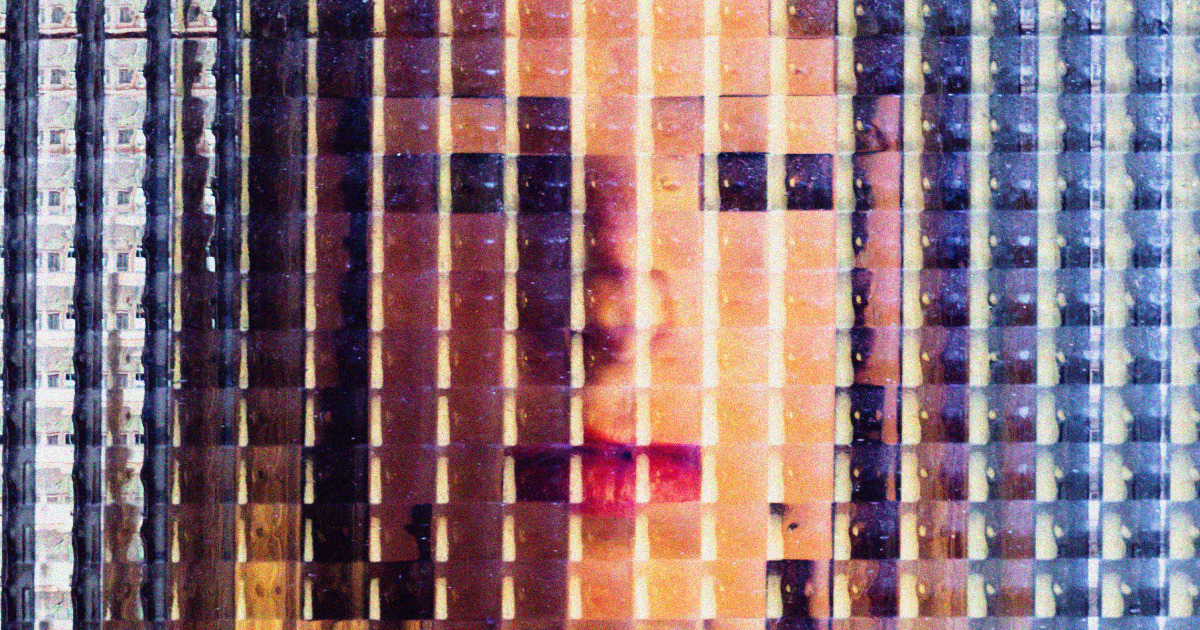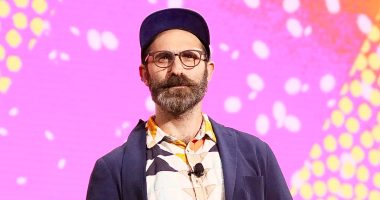
More than 12,000 parents are urging TikTok to more clearly label AI-generated influencers who could pass as real people to viewers.
The parents, in an online petition addressed to TikTok CEO Shou Zi Chew, said they’re concerned that AI influencers — who often show off AI-perfected faces and bodies in their content — may contribute to unrealistic beauty standards and body dysmorphia for children and teenagers.
The letter is sponsored by nonprofit ParentsTogether, which advocates for policies to make the internet safer for kids.
“Virtual influencers” have been around for years, but parents say the more recent explosive growth of generative AI technology has made it harder for casual social media users, especially children, to distinguish between real and artificial content.
Since early last year, TikTok has required creators to label all realistic AI-generated content, and the platform allows accounts to apply the label through a toggle function.
ParentsTogether campaign director Shelby Knox said that’s not enough to ensure consistent labeling. Oftentimes, she said, these videos remain unlabeled, and viewers wouldn’t know they were watching an AI content creator unless they visited their profile.
Many of these accounts note in their bios that they are virtual influencers, although they don’t explicitly label their content or persona as being AI-generated. Others tend to bury disclosures like “#aiinfluencer” in the hashtags of their videos.
“I’m not sure that your average kid knows that a virtual influencer is industry speak for, ‘This person isn’t real,’” Knox said. “So because these companies are making money on TikTok’s platform and it is contributing to a dangerous culture, our view is that TikTok has a responsibility to come in and figure out how to consistently and visibly label these accounts and these videos.”
A spokesperson for TikTok wrote in an email that the platform has removed three of the accounts flagged in ParentsTogether’s parent advisory.
“While we welcome the creativity that AI can unlock, we recognize the risks it can pose when the use of AI is not transparent. We have been very proactive in building safety efforts that empower creativity while protecting viewers,” the spokesperson wrote, adding that TikTok prohibits content “showing or promoting disordered eating or any dangerous weight loss behaviors.”
Although issues around AI transparency are not new, nor are they exclusive to TikTok, Knox said parents began noticing the issue more a few months ago when kids were off of school and scrolling social media more often. She said that when the concern was first flagged, even the staff at ParentsTogether were unable to tell that some of these influencers weren’t real people.
One account, an AI influencer who goes by Deanna Ritter, has 127,000 followers and millions of views on the platform. Videos of her posing in bikinis and lingerie — none of which include an AI disclaimer — often accrue hundreds of comments applauding her appearance, seemingly without any knowledge of it being AI-generated.
Another account with more than 70,000 followers takes on the appearance of a college-aged girl named Cameron who regularly posts videos of herself lip-syncing and dancing in a bedroom.
Parents are particularly concerned about platforms like TikTok and YouTube because these are the platforms most popular among kids, according to Knox. While this petition addresses TikTok in particular, she said she believes it’s worth looking deeper into the prevalence of the issue on YouTube as well.
A spokesperson for YouTube wrote in an email that the platform prohibits content that glorifies eating disorders and partners with third-party experts to support the well-being of children and teenagers on the platform.
“For example, we limit recommendations for teens in the U.S. of content that compares physical features, idealizes some types over others, or idealizes specific fitness levels or body weights,” the spokesperson wrote, “and we have a comprehensive framework for approaching eating disorder-related content on YouTube.”
Virtual influencers have also attained massive popularity on Instagram, with accounts like Lil Miquela and Shudu partnering with brands and working as fashion models.
Though some of these creators are well-known for being AI-generated, users unfamiliar with them can often mistake them for real people. Under one photo of Shudu, a commenter wrote: “Your beauty is super natural.”
“I think that this is just indicative of the larger moment we’re in: Parents are overwhelmed. Social media has become sort of a crisis for young people in this country,” Knox said. “Parents are dealing with all of these things and are coming together to say: ‘Something has to change here. Big tech has access to our kids and we need regulation.’”
Source: | This article originally belongs to Nbcnews.com










